Phyrexia: All Will Be One Mechanics
Things aren't going so well in Phyrexia: All Will Be One, or they're going extremely well depending on your views of Phyrexian domination over the Multiverse. New Phyrexia is in full bloom, and while the praetors may have some minor disagreements on the best way forward, and while there may be some Planeswalkers showing up to ruin everything, and while there may still be some Mirrans running around planning to take their plane back, what part of inevitable is unclear? All will be one. No set is compleat without new mechanics though, so let's take a look.
Toxic
Can't you see Phyrexia's calling? Creatures like these should wear a warning. They're dangerous, and falling victim to them might have you succumbing to a poisonous fate, no matter what your life total is. Toxic is a new keyword ability found on several Phyrexian creatures in this set, including the terrifying Paladin of Predation.
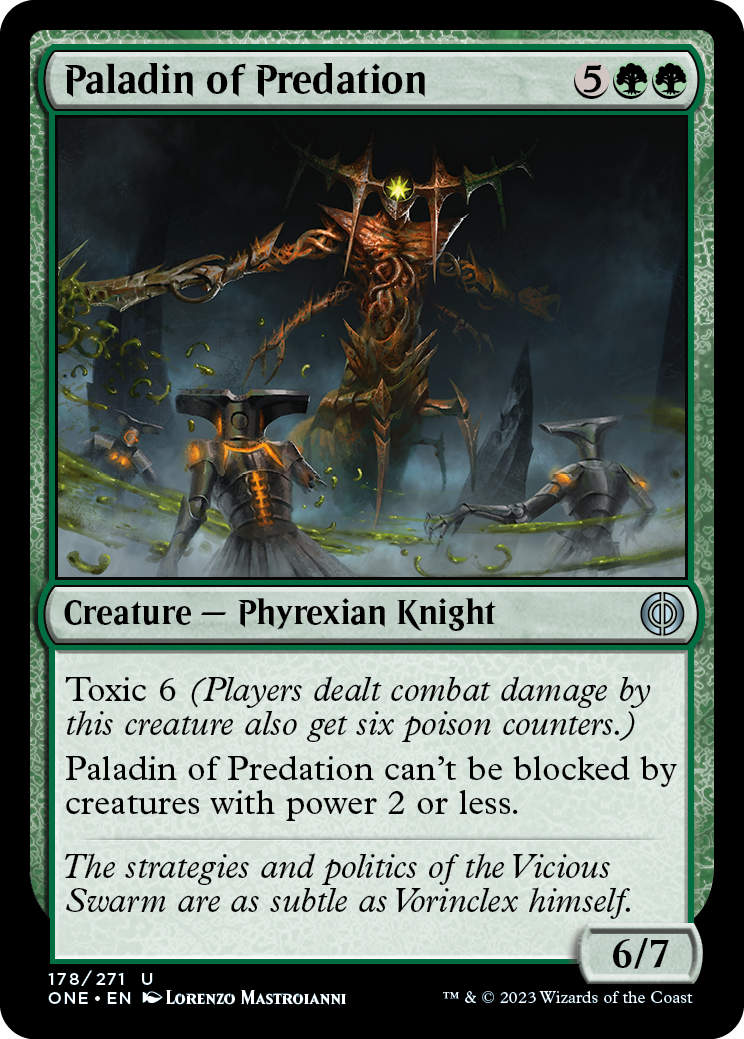
Any time a creature with toxic deals combat damage to a player, that player gets a number of poison counters equal to the toxic value of that creature. That's the number after the toxic keyword. These poison counters are handed out in addition to the damage being dealt, so bad news for that player on multiple axes. A player with ten or more poison counters loses the game, but in the next section, we'll learn that advantages for poisoning your opponents kick in much sooner.
A creature's toxic value and its power aren't necessarily connected. If a creature with toxic 6 deals 1 combat damage to an opponent, they're getting six poison counters. 15 combat damage? Still six poison counters. Toxic doesn't help if the creature deals combat damage to another creature or a planeswalker.
Corrupted
Poison counters have been a long-time favorite for alternate-win conditions, but outside of a few individual cards, it's mostly been all or nothing. If you couldn't deliver the tenth poison counter, the first nine didn't matter much. Corrupted is a new ability word that highlights abilities that make cards stronger if an opponent has three or more poison counters.
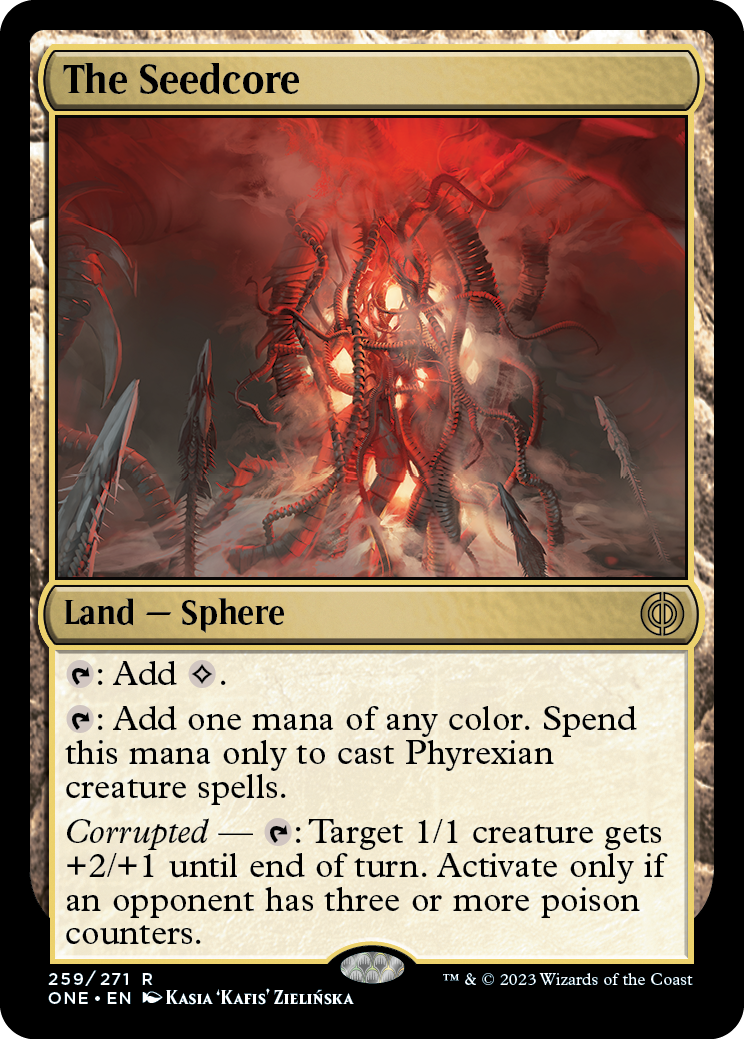
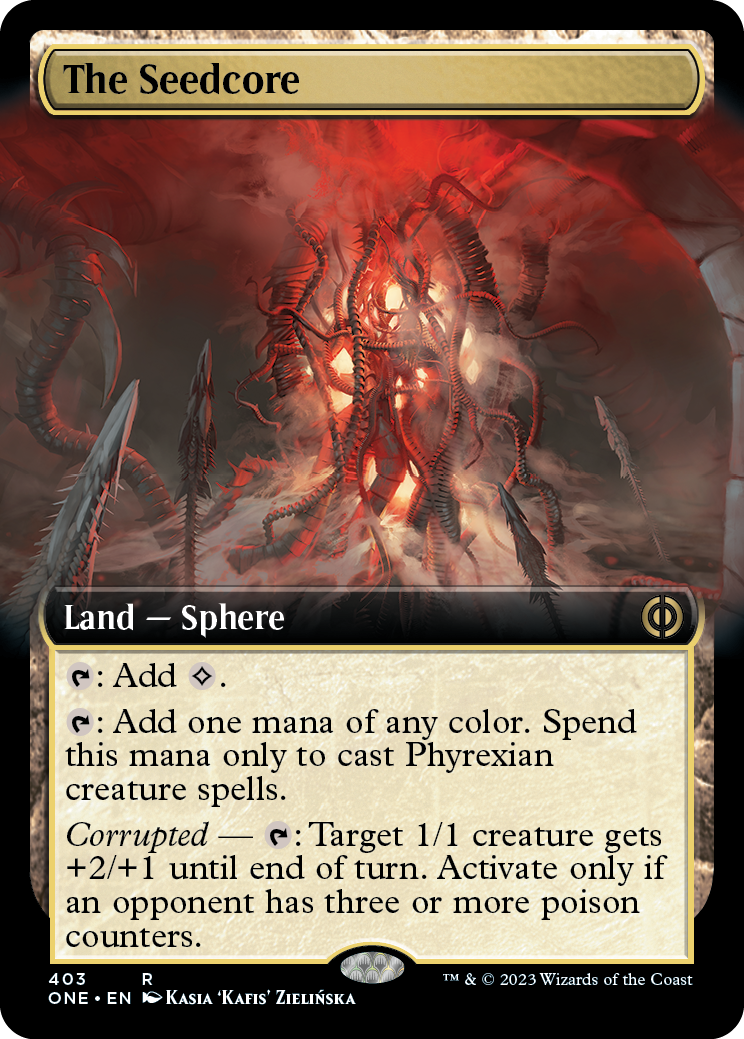
Some corrupted abilities, like The Seedcore's last ability, are activated. If you have a corrupted opponent, you can activate the ability, and if you don't, you can't. Other corrupted abilities, such as the last ability of Skrelv's Hive, are static, and their effects are active as long as an opponent has three or more poison counters. In multiplayer games, you need only one opponent to have three or more poison counters, not all of them.
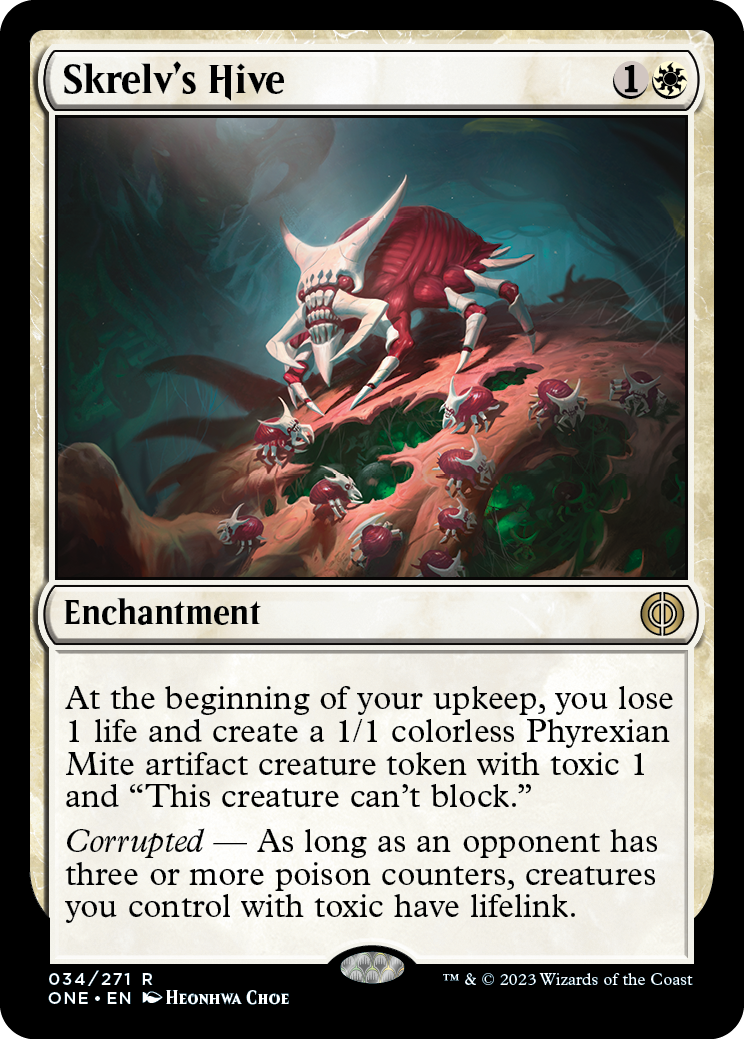
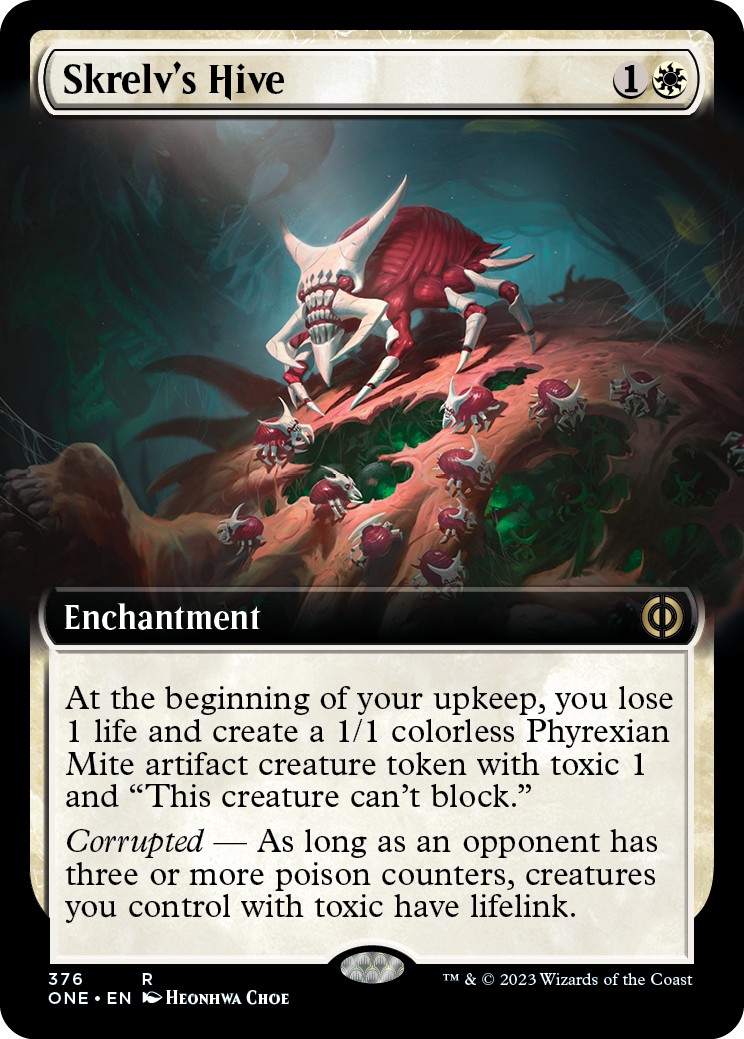
You'll also find instants and sorceries with corrupted abilities. Some of these abilities provide additional effects if you have a corrupted opponent as the spell resolves. Others affect what a spell costs or what it can target. Corrupted abilities are flexible, and each card will tell you what specific reward—other than ridiculous fun—handing out those poisoning counters can have.
For Mirrodin!
The Mirrans aren't quite conceding this fight just yet. For Mirrodin! is a new triggered ability found on some Equipment cards that come complete (not the other spelling) with their own wielder.
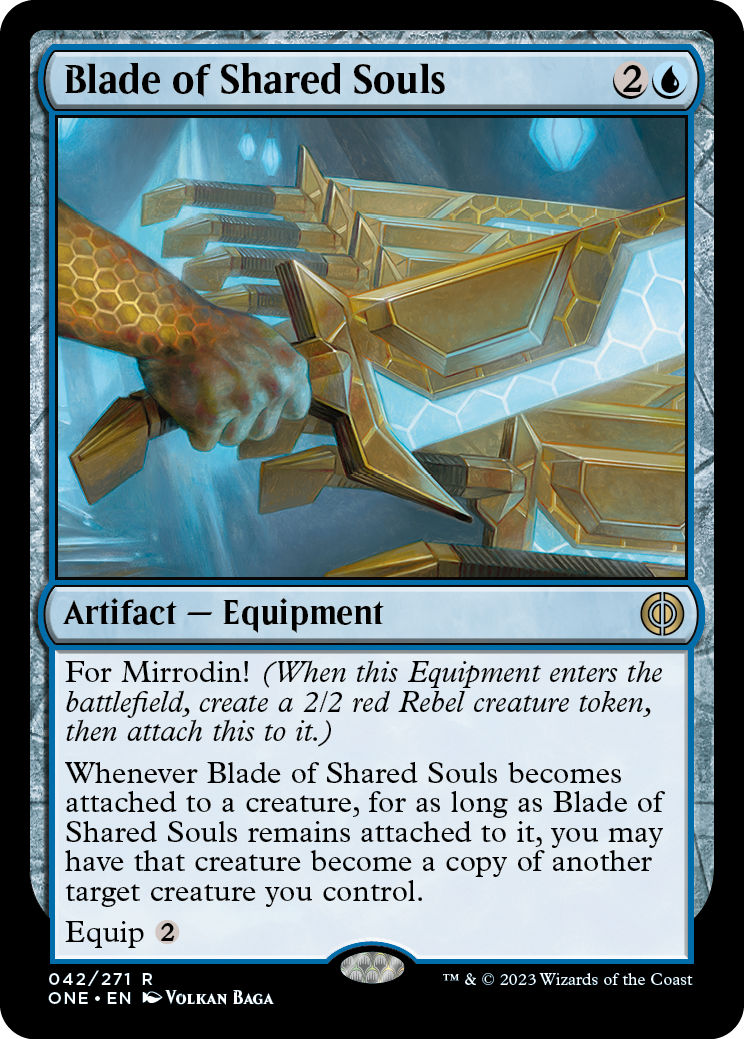
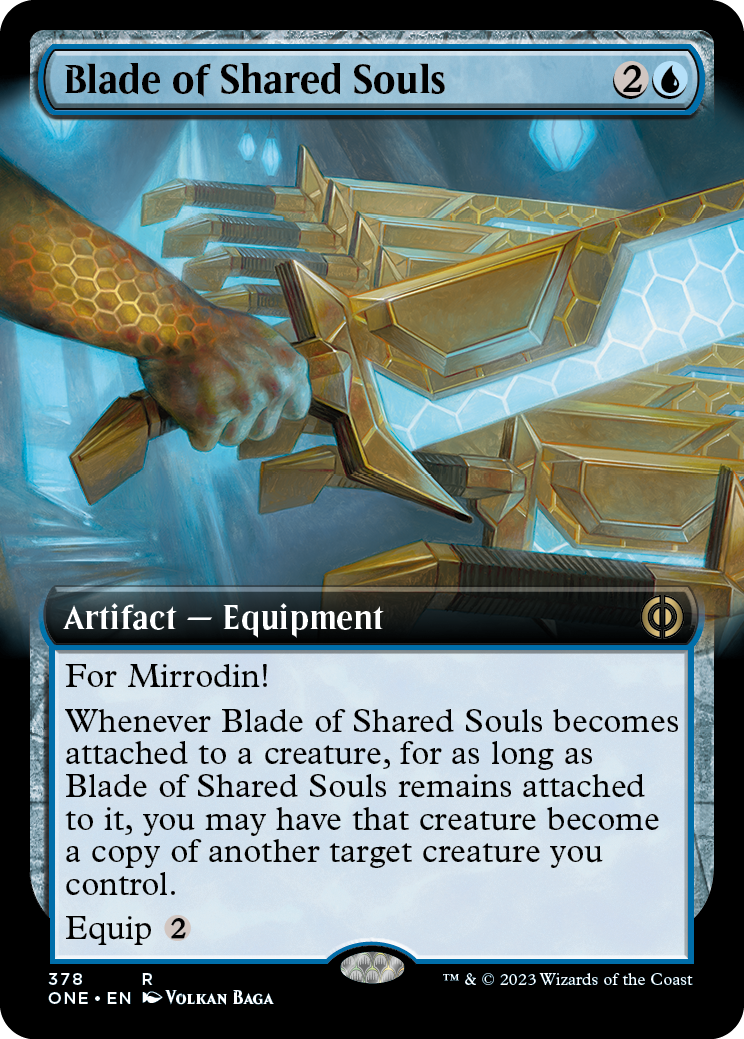
The Equipment enters the battlefield unattached like other Equipment. If for some reason it leaves the battlefield before the triggered ability resolves, you'll still create the Rebel creature token, although they'll be sadly empty-handed. Equipment with For Mirrodin! behaves just like other Equipment. You can use the equip ability to attach such an Equipment onto another creature you control.
Oil Counters
Although oil counters aren't a keyword ability, and they have no inherent rules meaning, they play a key role in Phyrexia's operation. Some cards, such as Urabrask's Forge, put oil counters on themselves and then use those counters for various effects.
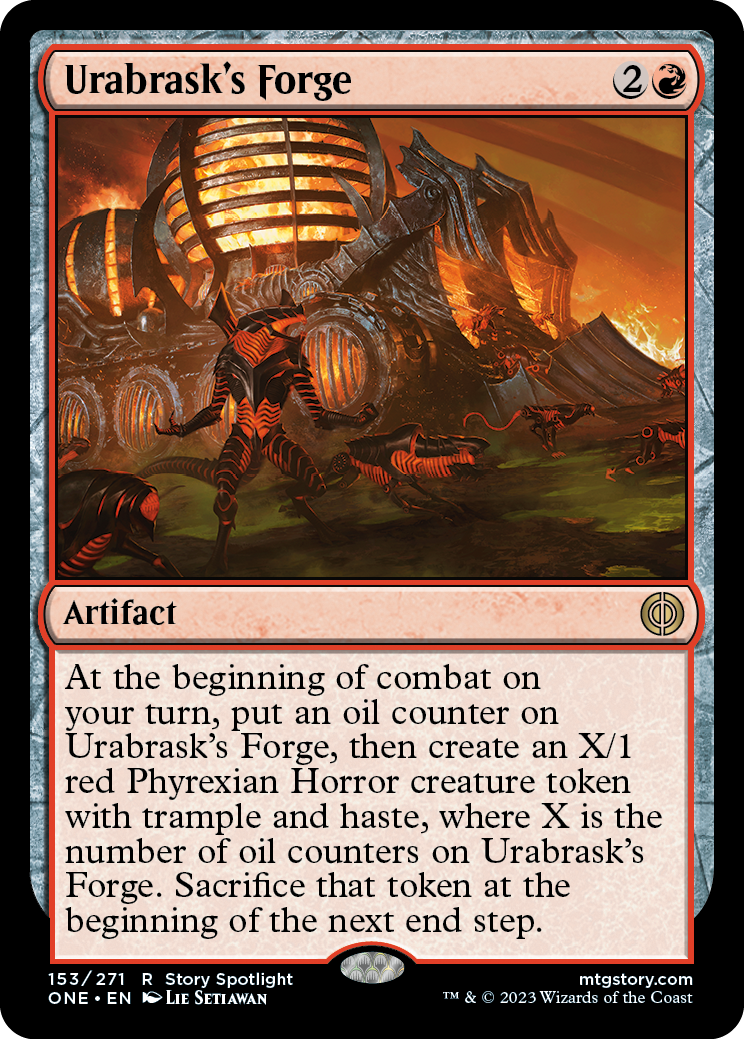
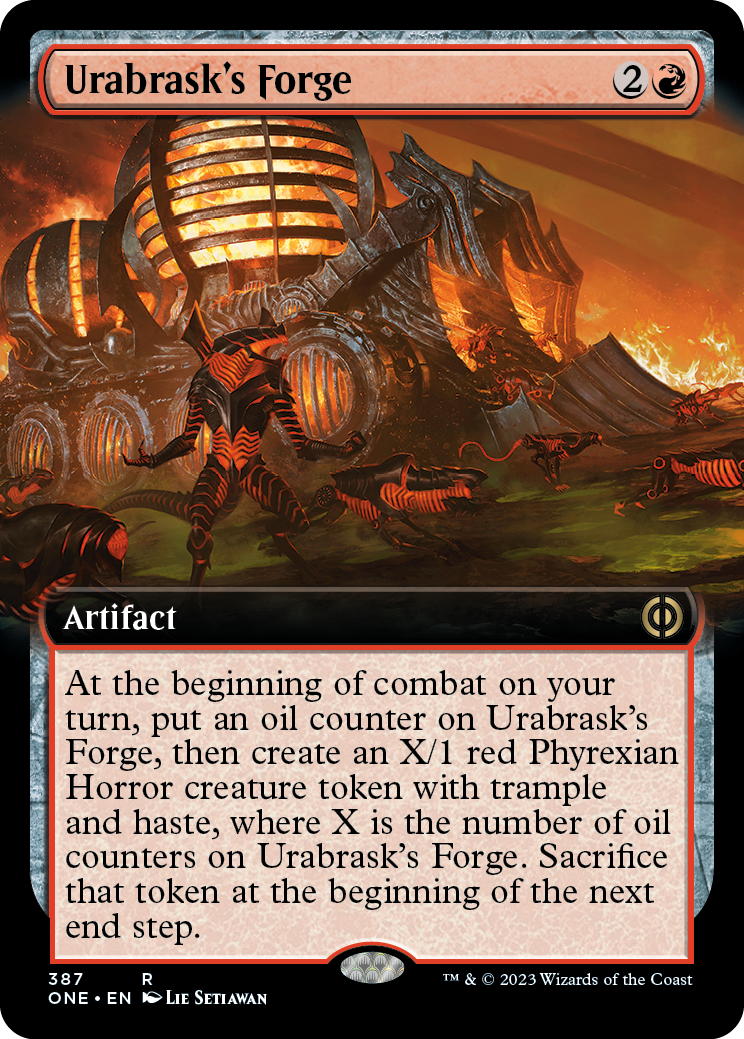
Other cards care about how many permanents you control with oil counters on them. Still others move oil counters around. Things get slippery very, very quickly.
Proliferate
Proliferate is a featured returning keyword action in this set, and it's no surprise: there are oil counters, poison counters, and wouldn't it be great if there were more of them? Any time you're instructed to proliferate, you choose any number of players or permanents that already have counters on them. For each one, and for each kind of counter it has, add another one.
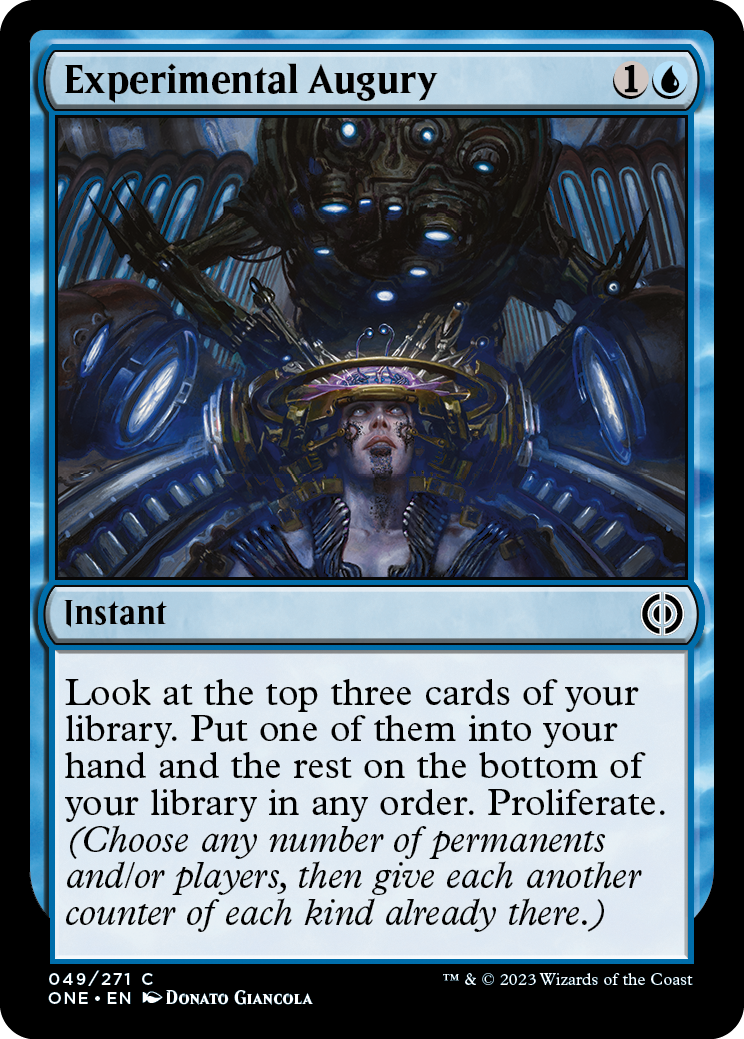
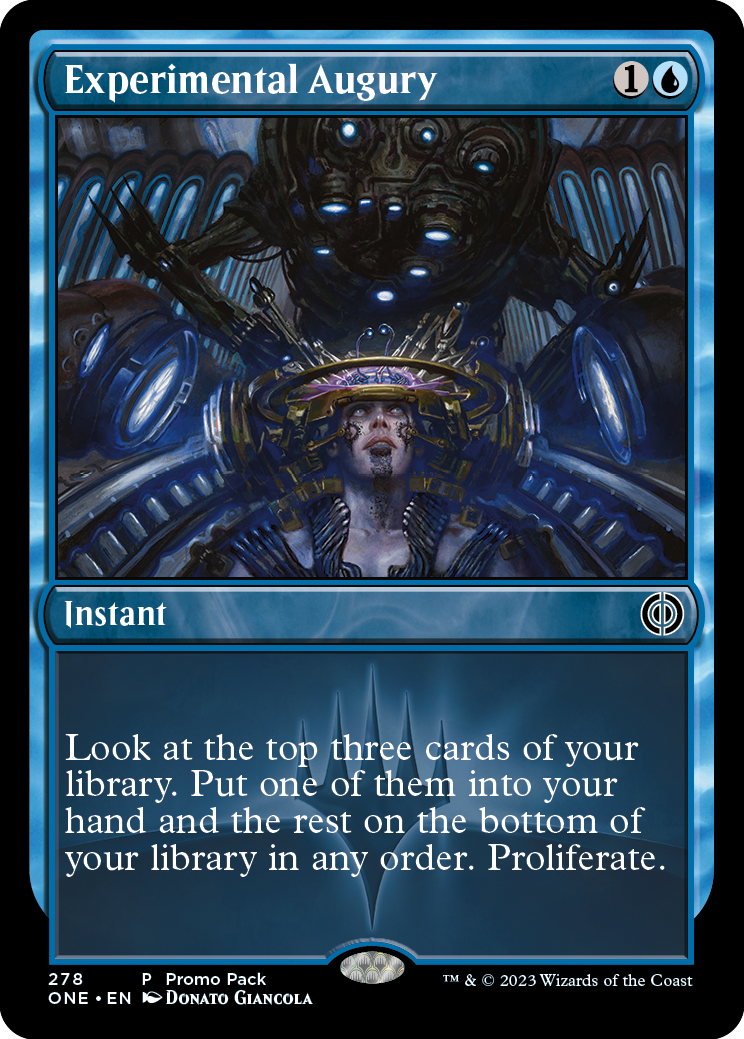
For example, if you control a creature with a +1/+1 counter and an oil counter on it, and you chose it while proliferating, it would end up with two +1/+1 counters and two oil counters. If you and your opponent each controlled a planeswalker, you could choose yours to get another loyalty counter while not choosing theirs to do the same. If you controlled a creature with a +1/+1 counter and a stun counter (a counter you might not want to add another of), you have a choice: add one of each kind of counter it has or add nothing.
All Will Be One
Which side will you follow into battle as the fate of the Multiverse hangs in the balance? Be ready when Phyrexia: All Will Be One releases on February 10 by preordering with your local game store, online through Amazon, or elsewhere Magic is sold.

